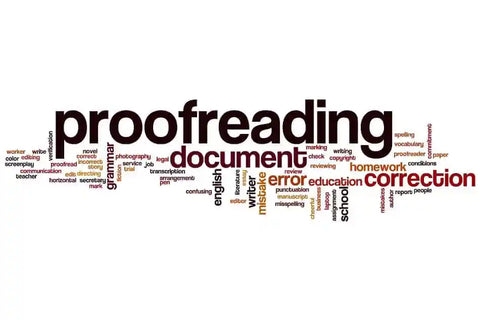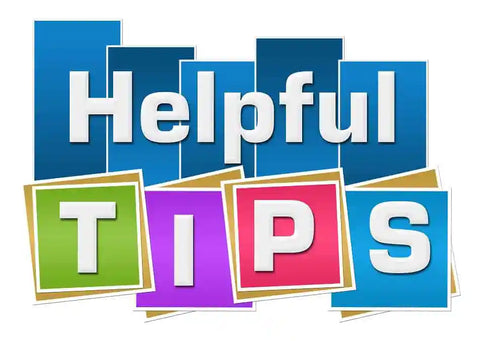The Tiniest Points of Punctuation
There are many authors these days who would argue that fussing over punctuation with the goals being precision and consistency is simply a waste of time. The point, they might argue, is to get the material out there, not consume valuable time polishing text until even the tiniest and least significant bit of punctuation shines. The problem with this rather easy-going strategy is that no piece of punctuation is insignificant and even the smallest point can become extremely significant when it is used incorrectly. In addition, such an easy-going strategy can only be truly effective with very simple prose that requires relatively little punctuation, and even in such cases it often promotes sloppy, inaccurate and inelegant writing. An old adage applies here: if something is worth doing, it is worth doing well or properly or to the best of your abilities. Dismissing a vital part of written communication as either above or below your abilities not only diminishes the quality of your written communication, but also your authority as an author.
A lack of authority and written communication of a poor quality are two undesirable possibilities that most academics and scientists would wish to avoid at all costs. It is also a fact that complicated research and complex analysis often require a rather sophisticated writing style if researchers are to achieve clarity and precision, so it is very rare indeed that an advanced scholar can effectively report the methods and results of his or her work without using punctuation extensively and carefully. The tiniest points of punctuation should therefore always be a concern for academic and scientific authors, and the most common errors of less educated writers should be strictly avoided.
These common errors include, for example, the notorious comma splice, a mistake that seems to be growing more common among all authors in recent years. A comma splice occurs when two main clauses (whether they share a subject or have different subjects) are joined together into one sentence via a comma alone or by means of a comma along with no more than an adverb or adverbial phrase. ‘I love conducting research, I go to the laboratory every weekend,’ ‘We were most pleased with the findings, our youngest researcher even cheered when the results were analysed’ and ‘The instructor intimidated him, as a result he dropped the course’ provide examples of commas misused in this way. Generally speaking, the result is a very loose sentence structure that is simply incorrect. Comma splices, particularly when they appear throughout a document, also suggest authorial laziness, and in more complex constructions they can misrepresent the relationships between clauses.
Solutions to comma splices are simple and straightforward. The comma can be replaced with a full stop and the initial letter of the following word capitalised: ‘We were most pleased with the findings. Our youngest researcher even cheered when the results were analysed.’ Adding a conjunction is another means of solving the problem: ‘I love conducting research, so I go to the laboratory every weekend.’ Finally, the comma can be replaced with a semicolon: ‘The instructor intimidated him; as a result he dropped the course.’ A semicolon implies a relationship between two parts of the sentence that is closer than that existing between two separate sentences, and it enables more complexity in either part of the sentence than does the use of a comma and conjunction.
If ever you find yourself tempted to neglect dedicating the time and attention required to perfect the punctuation in your academic or scientific writing, remember that appropriate usage will produce a text that is not only clearer, but also more scholarly. After all, the qualities that accurate and effective punctuation requires and conveys – expertise, precision, exactitude, attention to detail, reflection, organisation and analysis – are the very qualities that the best of scholars admire and demonstrate.
Why Our Editing and Proofreading Services?
At Proof-Reading-Service.com we offer the highest quality journal article editing, dissertation proofreading and online proofreading services via our large and extremely dedicated team of academic and scientific professionals. All of our proofreaders are native speakers of English who have earned their own postgraduate degrees, and their areas of specialisation cover such a wide range of disciplines that we are able to help our international clientele with research editing to improve and perfect all kinds of academic manuscripts for successful publication. Many of the carefully trained members of our manuscript editing and proofreading team work predominantly on articles intended for publication in scholarly journals, applying painstaking journal editing standards to ensure that the references and formatting used in each paper are in conformity with the journal’s instructions for authors and to correct any grammar, spelling, punctuation or simple typing errors. In this way, we enable our clients to report their research in the clear and accurate ways required to impress acquisitions proofreaders and achieve publication.
Our scientific proofreading services for the authors of a wide variety of scientific journal papers are especially popular, but we also offer manuscript proofreading services and have the experience and expertise to proofread and edit manuscripts in all scholarly disciplines, as well as beyond them. We have team members who specialise in medical proofreading services, and some of our experts dedicate their time exclusively to dissertation proofreading and manuscript proofreading, offering academics the opportunity to improve their use of formatting and language through the most exacting PhD thesis editing and journal article proofreading practices. Whether you are preparing a conference paper for presentation, polishing a progress report to share with colleagues, or facing the daunting task of editing and perfecting any kind of scholarly document for publication, a qualified member of our professional team can provide invaluable assistance and give you greater confidence in your written work.
If you are in the process of preparing an article for an academic or scientific journal, or planning one for the near future, you may well be interested in a new book, Guide to Journal Publication, which is available on our Tips and Advice on Publishing Research in Journals website.








